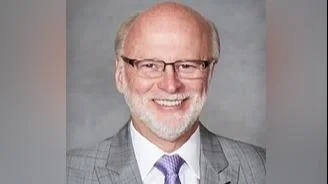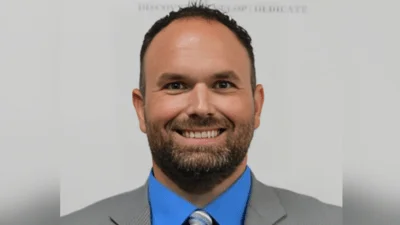State Representative Wayne Rosenthal (IL) | Representative Wayne A Rosenthal (R) 108th District
State Representative Wayne Rosenthal (IL) | Representative Wayne A Rosenthal (R) 108th District
The Illinois General Assembly is set to convene for its fall veto session, where lawmakers will consider Governor Pritzker's vetoes of bills enacted in the spring session, as well as new legislative business. Minority Republicans could have a voice in any new legislation that moves forward during the session. The General Assembly's veto session will run from October 24 to November 9.
One of the key issues facing lawmakers is the soaring cost of the state's health benefits program for undocumented immigrants. The program, which provides free healthcare benefits for undocumented immigrant adults and children, has seen its estimated cost balloon to $831 million. House Republicans have called for a moratorium on enrollment and expansion of the program, as well as an audit of program costs. However, the Illinois Department of Healthcare and Family Services (HFS) has only announced a temporary pause on new enrollees in the program. The HFS has still not implemented co-pays and other cost-sharing measures, raising concerns about the program's sustainability.
In the energy sector, Illinois' natural gas rates may see another hike. The state's four largest natural gas utility suppliers have advanced a joint request for a rate hike, which would affect 4.1 million customers throughout the state. The utilities argue that the increase is justified due to the cost of rebuilding and maintaining their supply infrastructure. However, advocacy groups have submitted opposition filings to the Illinois Commerce Commission (ICC). The ICC will make the final decision on whether to approve the rate hikes.
Illinois is also making strides in clean energy. The state has been selected by the U.S. Department of Energy to receive $1 billion in federal assistance to create a "hydrogen hub." The Midwest Alliance for Clean Hydrogen (MachH2) will lead the project, which aims to lay a network of pipelines from hydrogen plants to power plants that use boilers to generate electricity. The goal is to switch these plants from natural gas to hydrogen, creating a zero-carbon energy source. Illinois has enacted a major hydrogen-hub stimulus bill to support this initiative.
On the tax front, Illinois continues to have a high property tax burden. According to a survey by the Tax Foundation, Illinois is the 6th most expensive state in the United States in terms of median annual property tax bills. The median Illinois annual property tax bill is $4,744, equivalent to an additional housing cost of almost $400 per month for the median residential home. This places a significant burden on Illinois homeowners compared to other states.
Lastly, the Illinois Department of Transportation (IDOT) is warning drivers about the peak season for deer collisions. With deer in mating season and searching for new territories, they are more likely to be seen on the roads, especially in the evening and at night. IDOT advises drivers to be cautious and not to swerve to avoid deer, as this can lead to more dangerous situations. In 2022, there were 14,524 reported deer-vehicle collisions in Illinois, with 629 resulting in injuries and four fatalities.
As the Illinois General Assembly convenes for its fall veto session, these are some of the key issues that lawmakers will address. From healthcare and energy to taxes and transportation, Illinois faces challenges that require careful consideration and decision-making.
To find out more, go to this link: https://reprosenthal.com/2023/10/23/recap-with-rosenthal-7/






 Alerts Sign-up
Alerts Sign-up